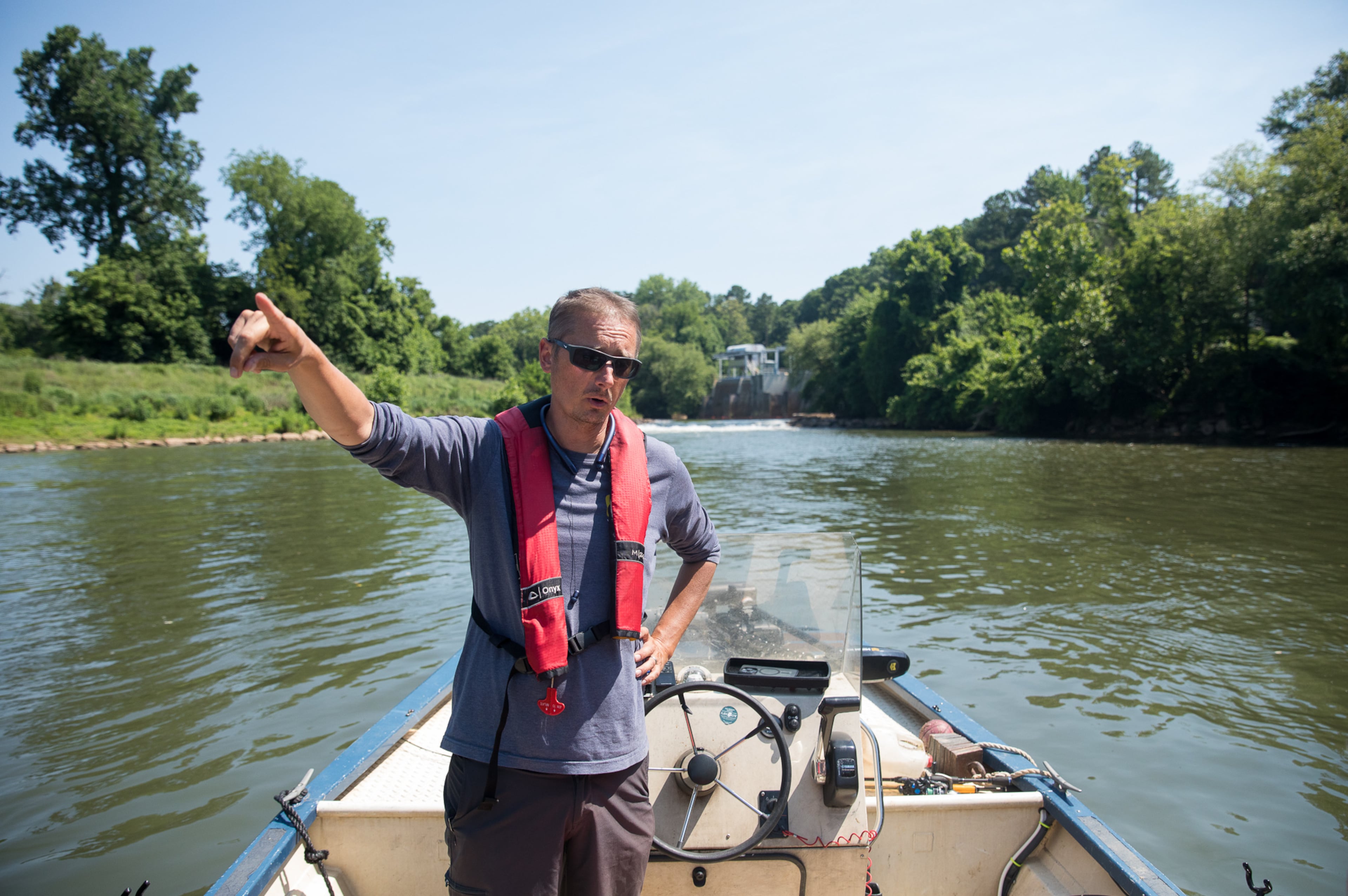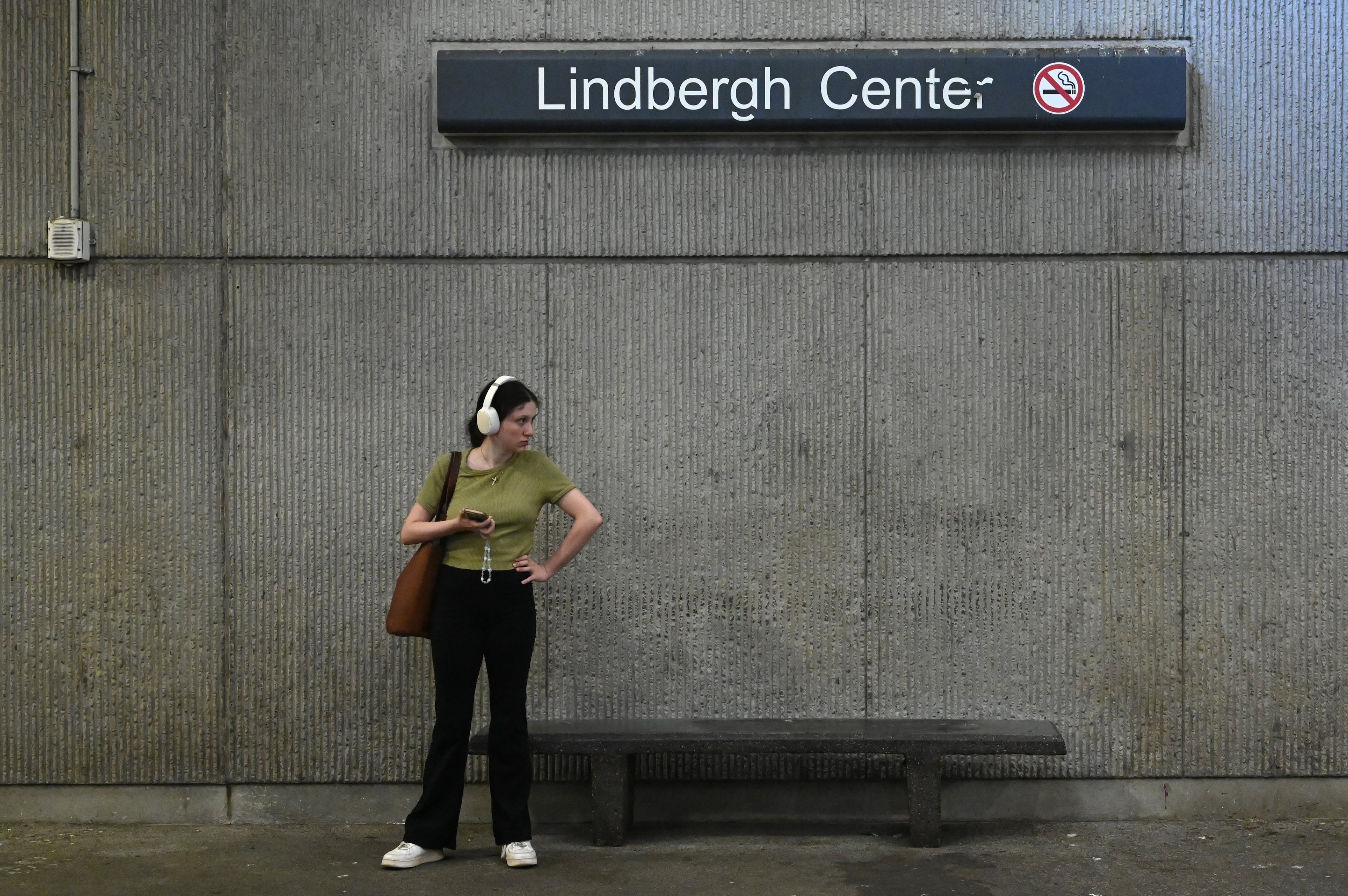Prosecutors: No evidence Arbery stole anything before he was killed
BRUNSWICK – Prosecutors in the Ahmaud Arbery case painted for jurors an image of a terrified Black man running for his life for at least five minutes as he was chased down and ultimately shot to death last year in a Glynn County neighborhood.
Defense attorneys representing the three white men charged with murder depicted a community on edge and a father and son fulfilling their “duty and responsibility” to protect their families and neighbors following months of break-ins.
It will be up to a jury of 11 whites and one Black man to decide which version of events to believe as they’re tasked with rendering a verdict in the widely publicized, racially charged case.
Linda Dunikoski, who delivered the state’s opening statements, asserted that Travis McMichael, his father Greg McMichael, and their neighbor William “Roddie” Bryan had no evidence that Arbery had committed any crime when they hemmed him in with their pickup trucks on Feb. 23, 2020.
“Why are we here?” Dunikoski asked the jury. “We are here because of assumptions and driveway decisions. All three of these defendants did everything they did based on assumptions. Not on facts, not on evidence. On assumptions.”

Attorneys from both sides showed surveillance photos and video footage of Arbery wandering around a home under construction in the Satilla Shores neighborhood on four separate occasions in the months leading up to his death. But Dunikoski said there’s no evidence to suggest he ever stole anything or damaged any property.
The home under construction, owned by Larry English, was unsecured and had no doors. English, who lives about two hours away in the city of Douglas, had installed motion-activated security cameras around his second home because teens regularly visited his dock, and he believed more than $2,000 worth of electronics equipment had been stolen from his boat. English later told police, however, that he didn’t know if the theft of that equipment occurred in Satilla Shores or his home in Douglas.
On Feb. 11, 2020, just 12 days before Arbery was killed, English called Glynn County police Officer Robert Rash after seeing Arbery inside the home nearly 100 miles away, Dunikoski said. English told Rash that he recognized Arbery on the surveillance footage and that he had never taken anything. Greg and Travis McMichael were also at the scene because Travis McMichael had seen Arbery dart inside the English home that evening.
Rash then relayed to the McMichaels what English was telling him on the phone call, the prosecution said.
“Officer Rash is standing there and you know what he says to the McMichaels?” Dunikoski asked. “He says, ‘I’m talking to Mr. English right now, he sent me some videos, and Mr. English says that this guy has never stolen or taken anything from his property.’ So the McMichaels at this point in time are fully informed that the owner of the house has informed law enforcement that Mr. Arbery has never taken anything from this property.”
Dunikoski noted that Greg McMichael later told police that he said to Arbery as they chased him through the neighborhood, “Stop or I’ll blow your (expletive) head off.” McMichael, said Dunikosky, also told police what he thought of the chase: “You trap him like a rat.”
She later played the widely shared cellphone footage of the 25-year-old Arbery being shot at close range with Travis McMichael’s Remington 12-gauge shotgun as the two struggled in front of McMichael’s pickup truck on a Sunday afternoon. Three shotgun blasts were fired, and Arbery collapsed in the street. In the courtroom gallery, Arbery’s parents were visibly upset.
His father, Marcus, left the courtroom after saying, “I don’t want to see that.” Arbery’s mother, Wanda Cooper-Jones, sobbed for several minutes as her attorney consoled her.
Later, when Officer William Duggan took the stand, the state introduced his body cam video that showed him putting his gloved hand on Arbery’s chest in a futile effort to stanch the flow of blood. As the video played, one juror shielded her face with her notepad, unable to watch, while Arbery’s mother buried her face in her hands.
During his opening statement, Bob Rubin, who represents Travis McMichael, said his client, a Coast Guard veteran, was following his training when he set off to detain Arbery. Rubin acknowledged that neither Travis nor Greg McMichael said they had witnessed a crime when Arbery took off running that day.
“There was no crime committed in their presence,” Rubin said. “We’re not contending there was. But there was probable cause to believe a felony had been committed and that this man was attempting to escape or flee.”
“It’s tragic that Ahmaud Arbery lost his life, but at that point, Travis McMichael was acting in self-defense,” Rubin said. He said the father and son never wanted to harm Arbery, but detain him as they waited for police.
“He knows if this guy gets his gun, he’s dead or his dad’s dead,” Rubin said, adding Travis McMichael was taught in the Coast Guard to “never lose your weapon.”
Greg McMichael’s lawyer, Frank Hogue, told the jury that his client had been shown videos of the man later identified as Arbery entering the house under construction by concerned neighbors. So when Arbery sprinted by after leaving the English home, McMichael immediately recognized him, Hogue said.
“Greg McMichael was absolutely sure,” Hogue said. “He was absolutely certain. And he was absolutely right. The guy he saw was the guy he suspected. … Greg had sound reasons to believe theft had occurred — burglary,” Hogue said.
Bryan’s lawyer, Kevin Gough, reserved the right to give his opening statement after the state rests its case. The trial resumes Monday at 9 a.m.





